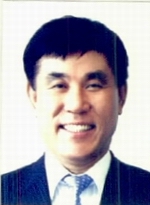성인완(전자계산학 82졸) 동문ㆍ동부프로미 농구단 단장

어떤 이는 한국 농구 최고 선수 김주성이 있고, 전창진이라는 최고의 감독이 있어서 가능했다고 말한다. 물론 맞는 말이다. 그러나 큰 관점에서 본다면 선수, 코칭스텝, 프론트 삼박자와 팬들의 함성이 있기에 가능한 것이 아니었을까.
간혹 어떤 이들은 동부 농구단이 센터놀음이나 하는 재미없는 수비농구를 한다고 말한다. 동부가 높이를 바탕으로 경기를 운영하는 스타일은 맞다. 그러나 과연 농구가 키가 크다고 해서 이길 수 있는 스포츠일까. 동부 농구단은 10개의 프로농구단 중에서도 운동량이 많기로 소문이 난 팀이다. 큰 신장에 가려진 땀과 노력은 보이지 않는 것일까.
우리 농구단의 이광재(가드ㆍ프로2년차) 선수는 지난 시즌 체중을 10kg 가량 감량했다. 이광재 선수는 체중 감량 비결을 묻는 한 팬의 질문에 “동부 프로미 농구단에 오세요. 다이어트 효과를 누릴 수 있습니다”라고 재치 있게 대답했다. 이어 이광재 선수는 “우리 팀의 가족 같은 분위기가 우승의 비결”이라고 말했다.
이광재 선수의 얘기처럼 난 동부의 우승이 무엇보다 프로정신을 바탕으로 한 가족같은 분위기가 낳은 결과라고 생각한다. 프로는 목표의식을 가지고 한계에 도전하는 것이라고 나는 말하고 싶다.
우리는 흔히 프로라고 하면 운동선수만을 지칭한다고 생각한다. 그러나 우리는 어느 위치에 있건 프로라는 생각으로 행동해야 한다. 대학생도 마찬가지다. 자신이 아직 서툴고 낮은 위치에 있다고 생각하면 그 위치에 머물 수밖에 없다. 높은 지향점을 가지고 프로처럼 행동해야 한다.
비시즌 동안 혹독한 체력훈련을 통한 시즌 대비를 하는 선수들과 코칭스탭이 있었기에 도전과 조직력 있는 플레이를 할 수 있었으리라 본다. 팬들은 그런 선수들이 최상의 컨디션과 환경에서 플레이를 할 수 있도록 한 마음 한 뜻으로 지원과 격려를 아끼지 않았다.
따라서, 우리는 목표의식과 자기만이 가질 수 있는 노하우를 갖고 성과를 창출해야만 하지 않을까? 프로는 결과로 말한다. 동부프로농구단은 비시즌의 땀과 노력을 팬들에게 성과라며 보여주지 않는다. 앞으로도 동부는 우승과 승리로 팬들앞에 나설 것이다.

